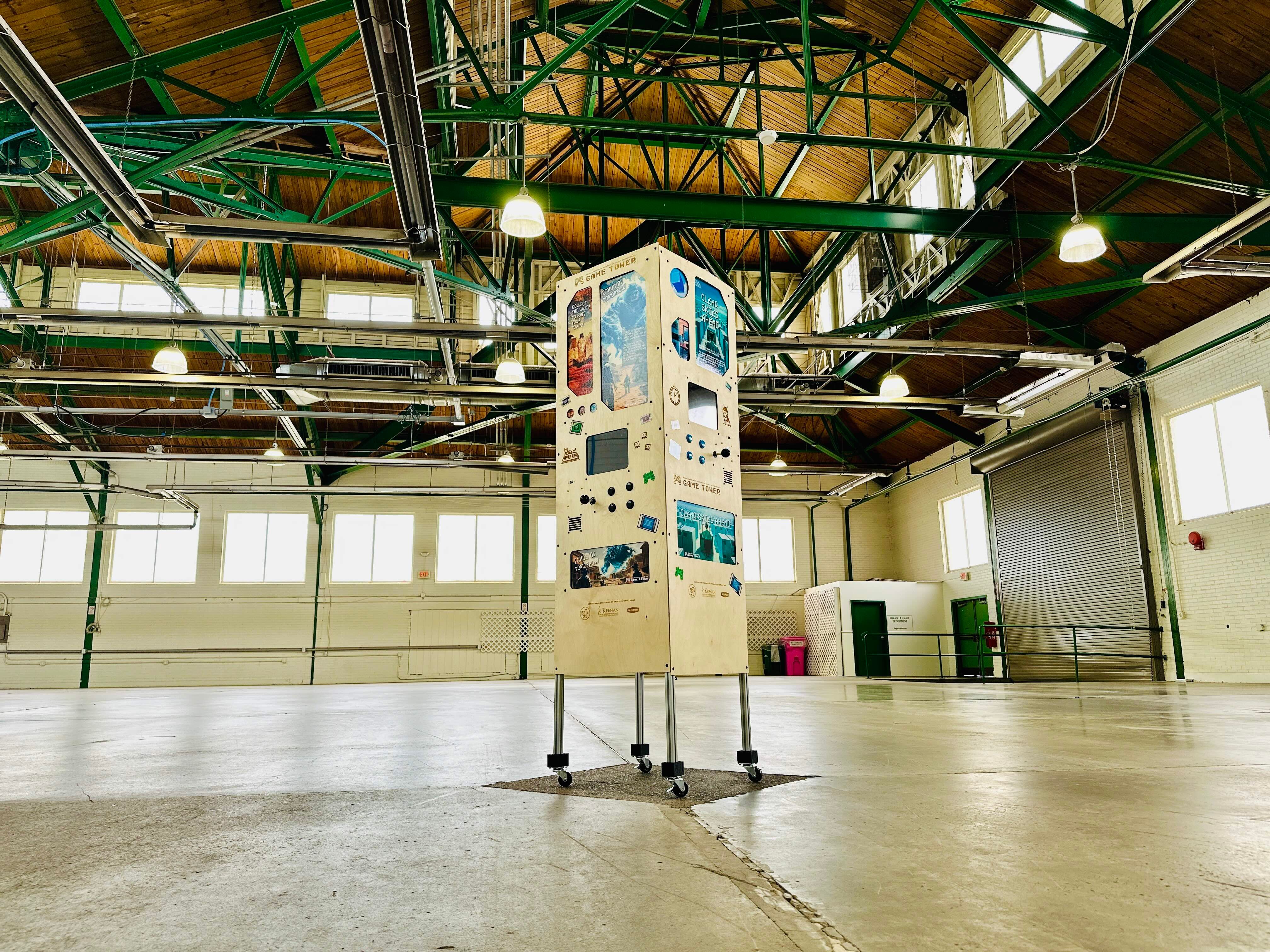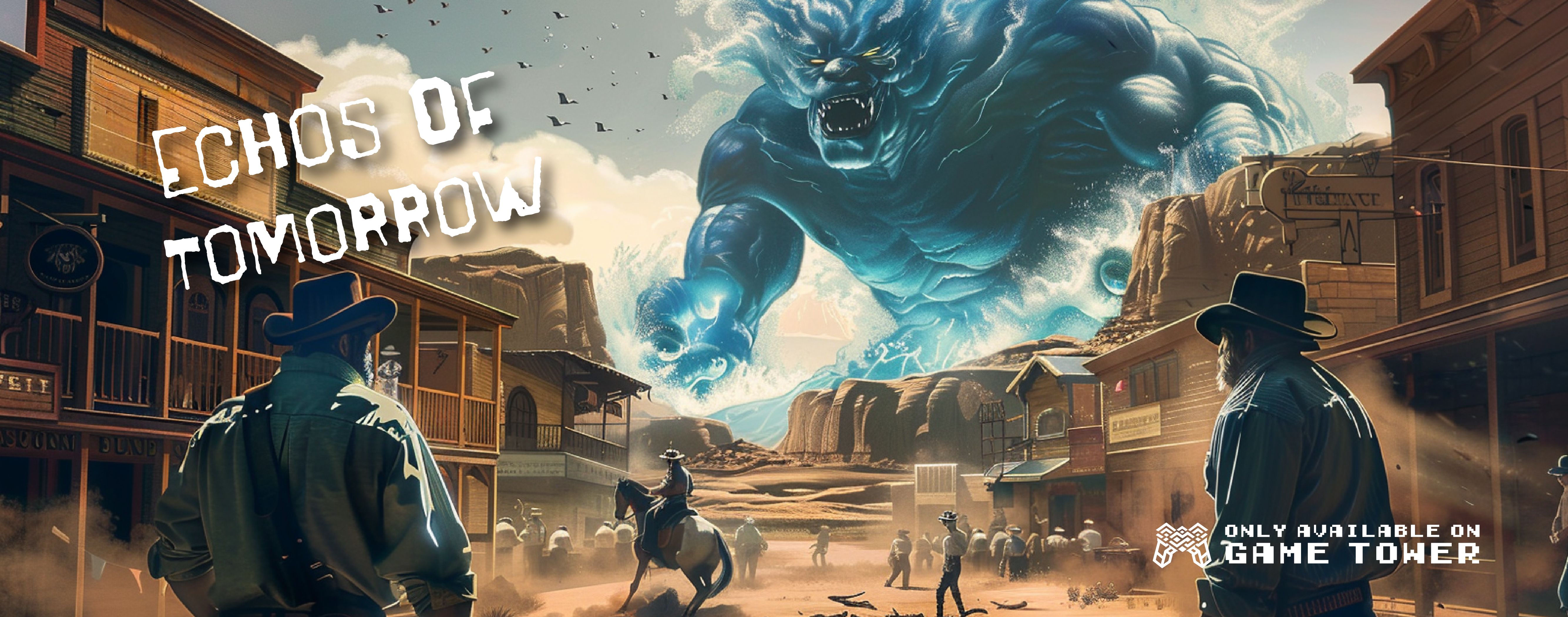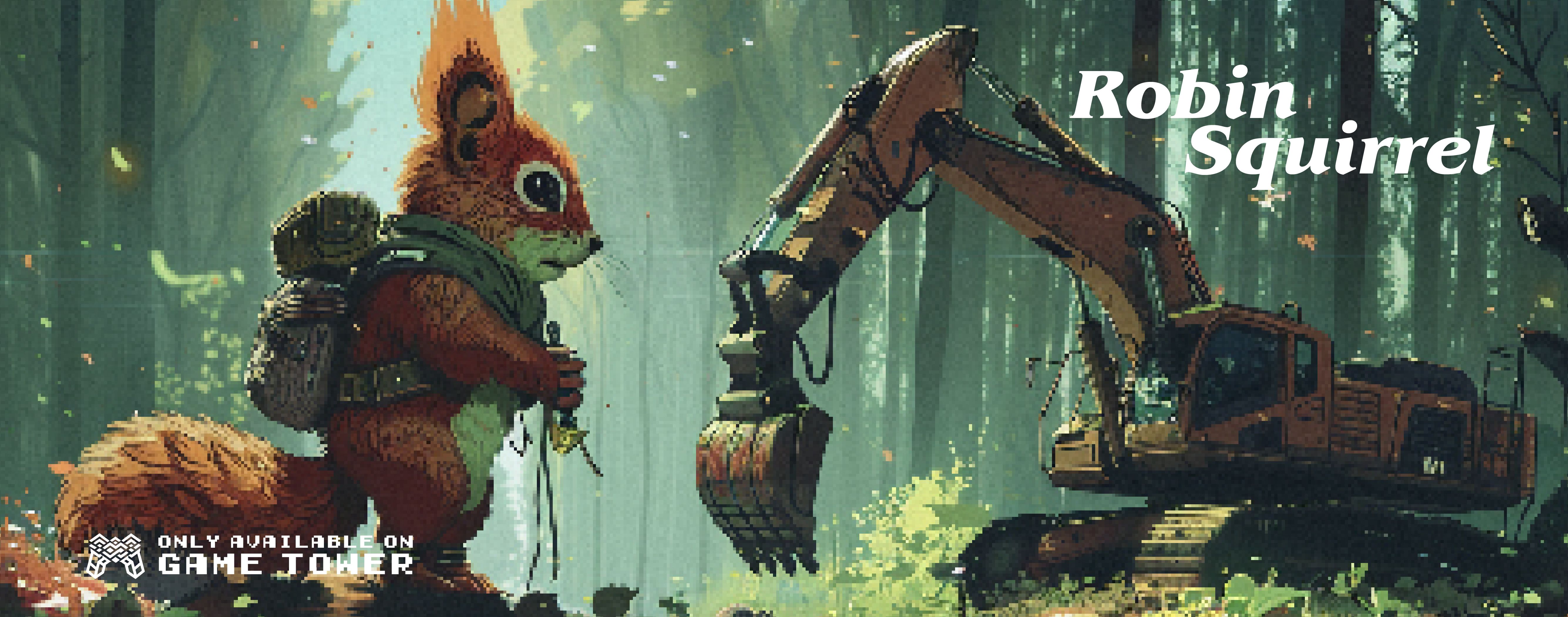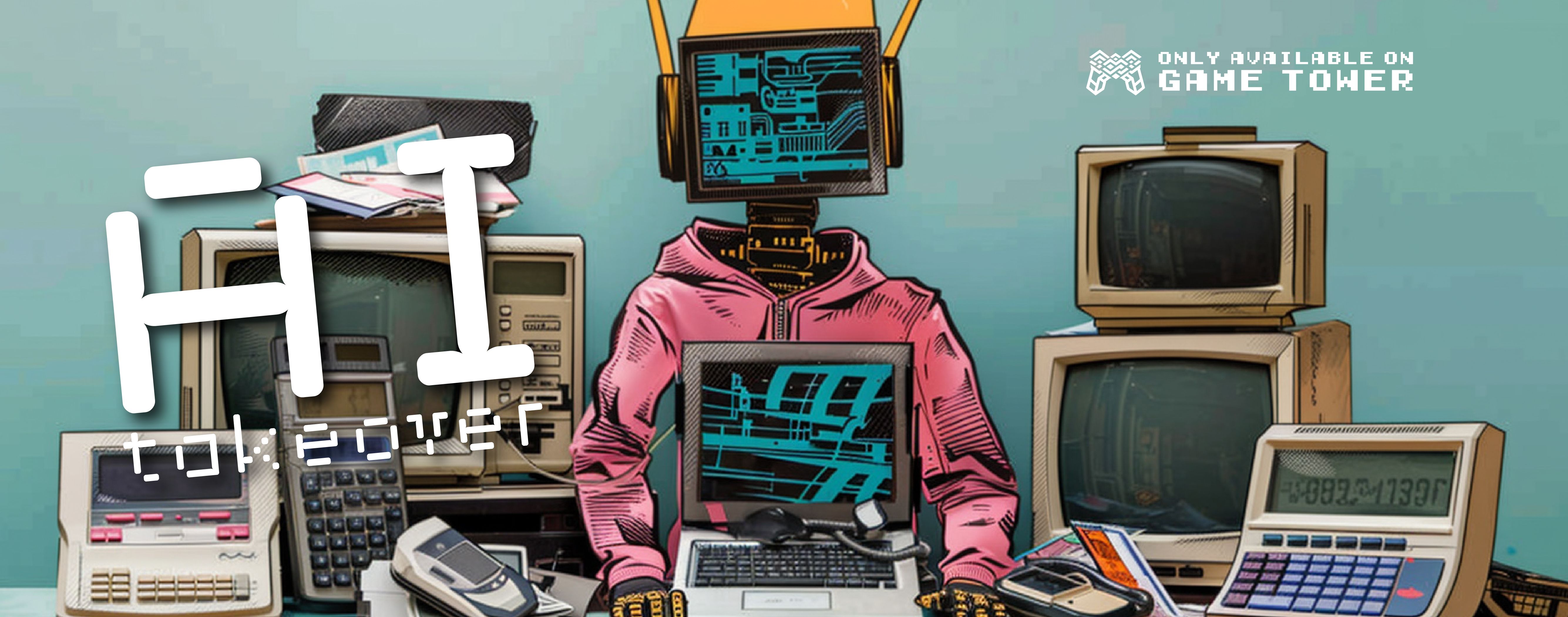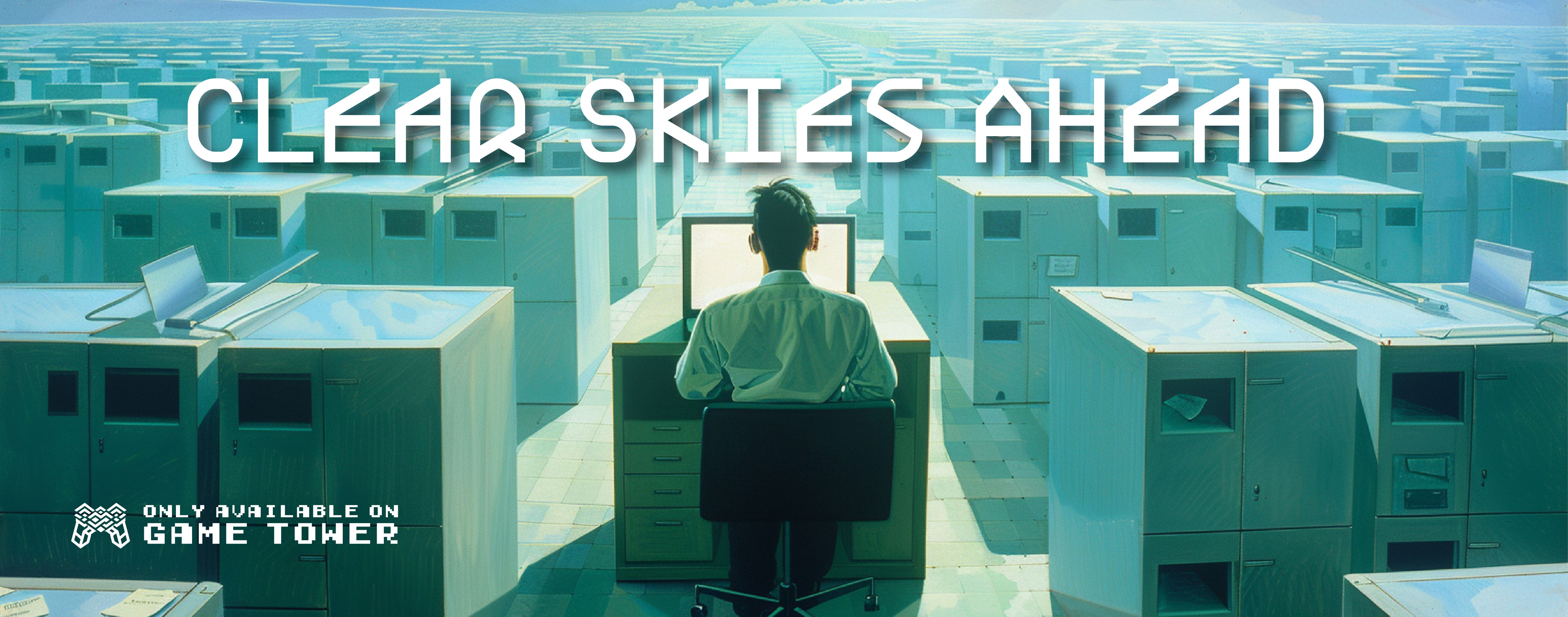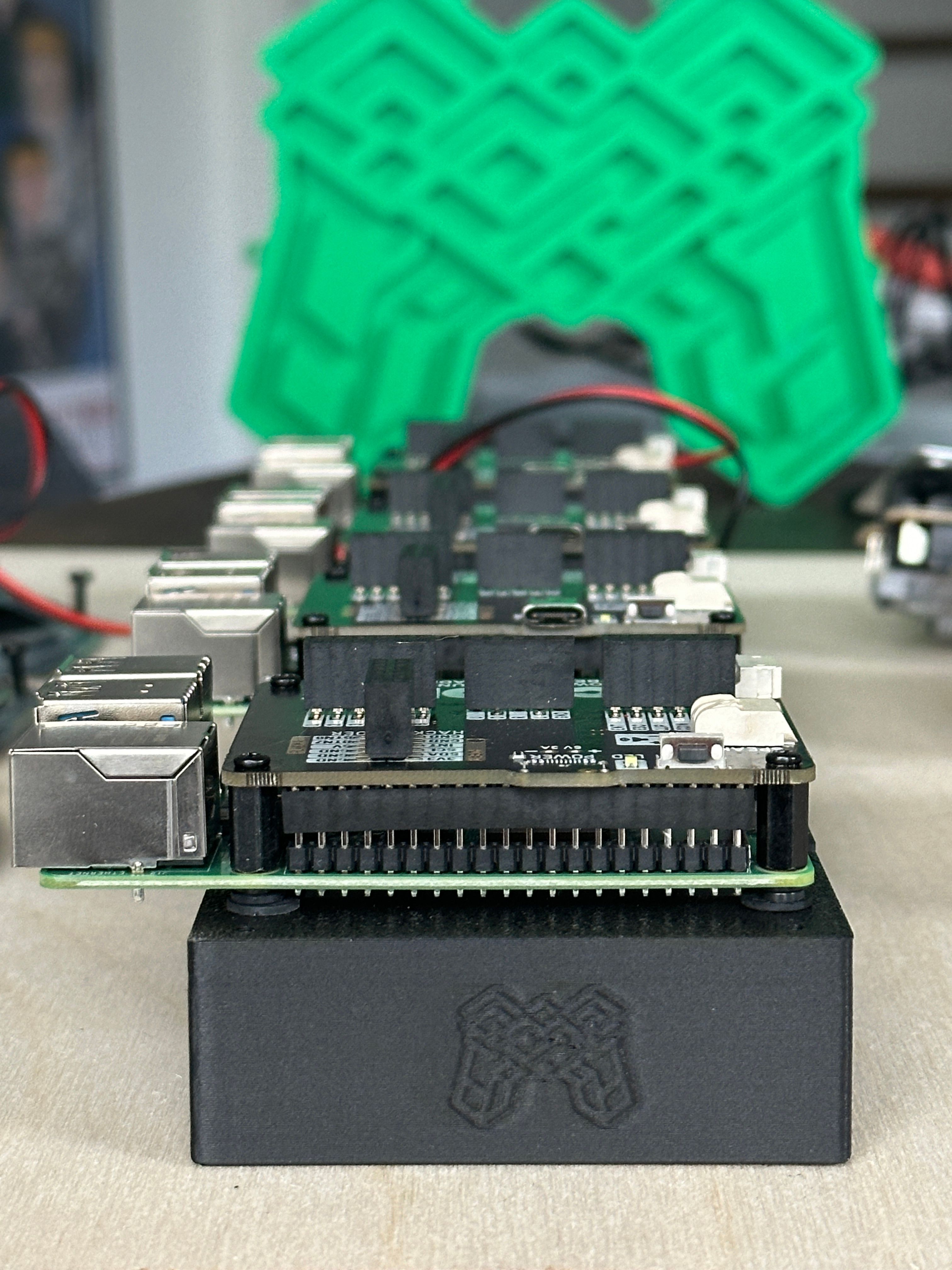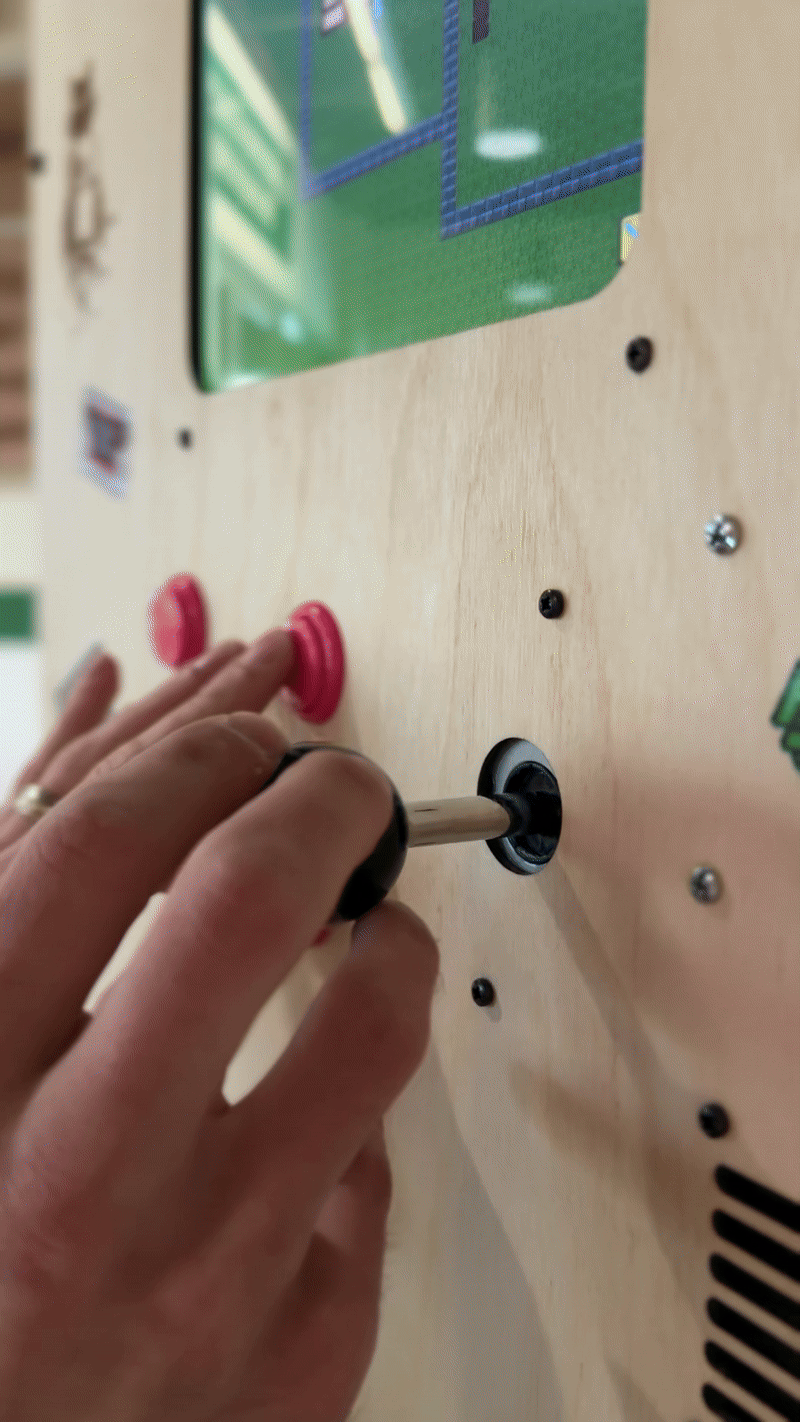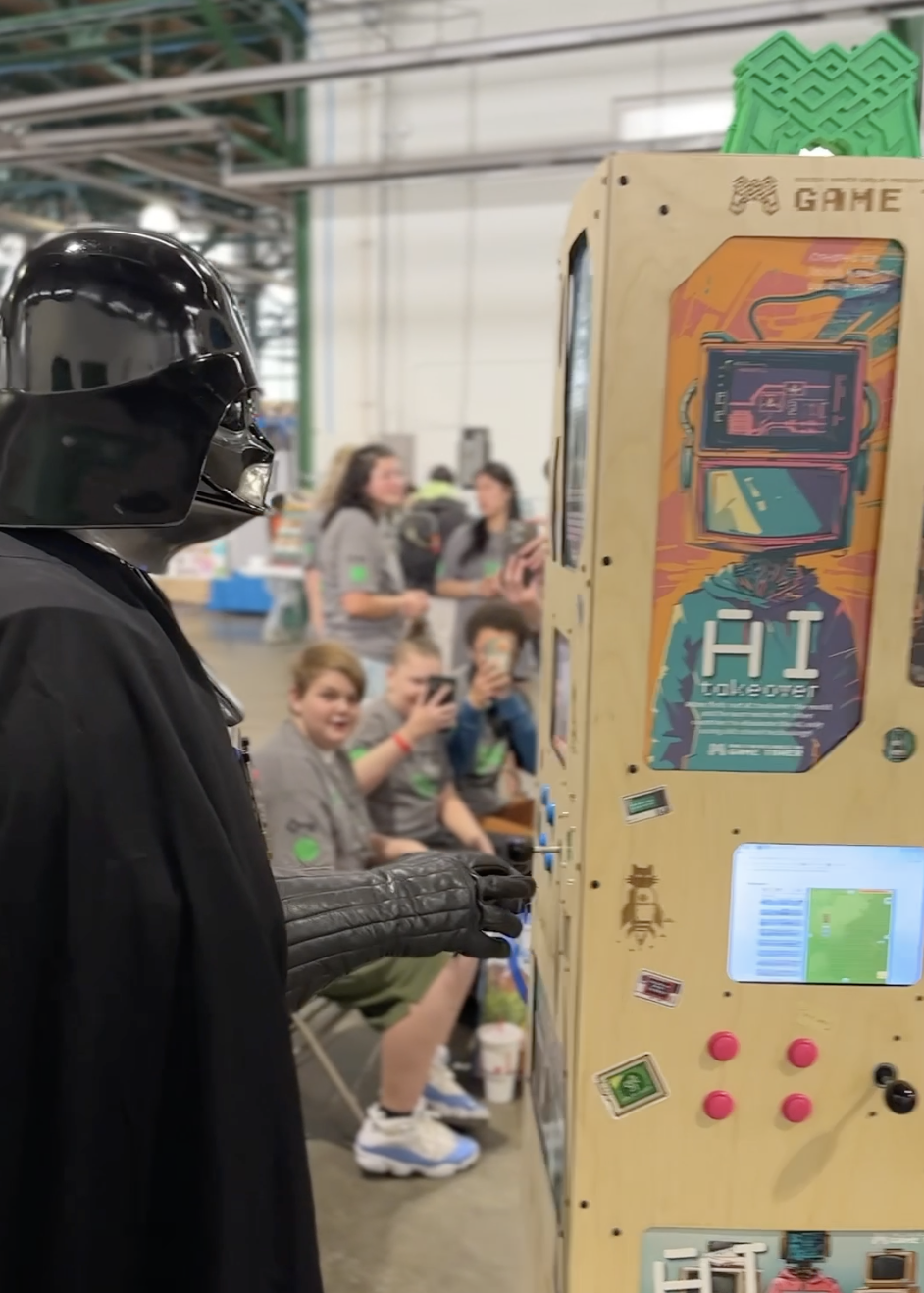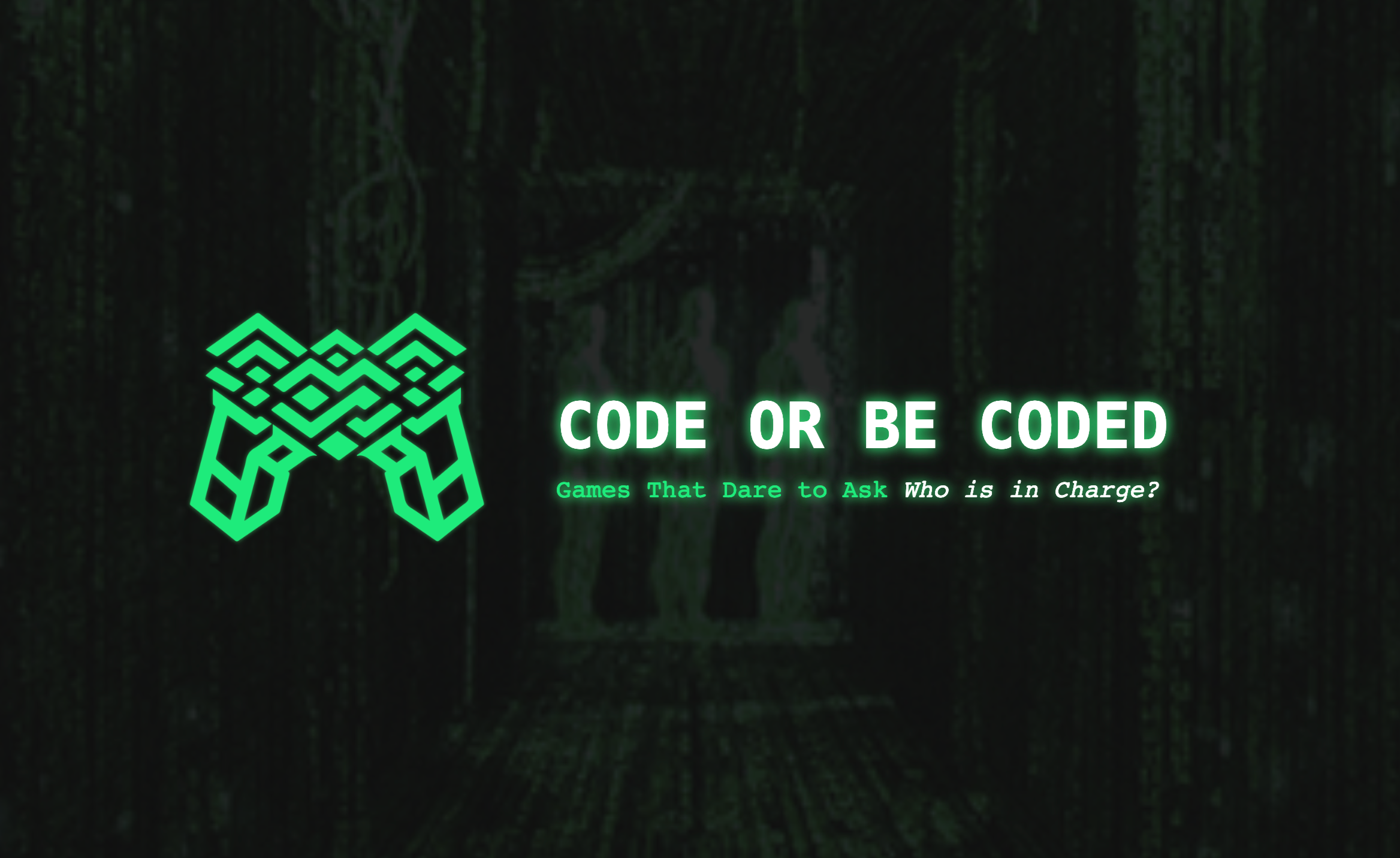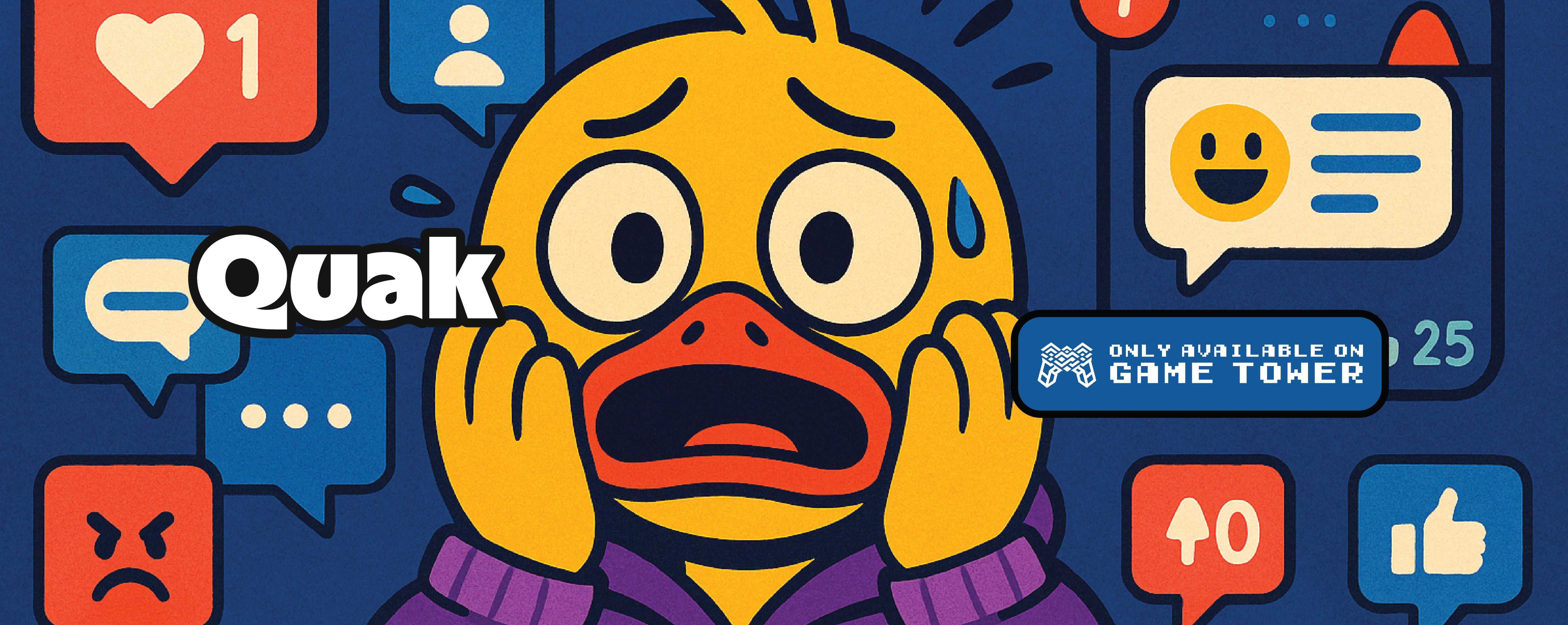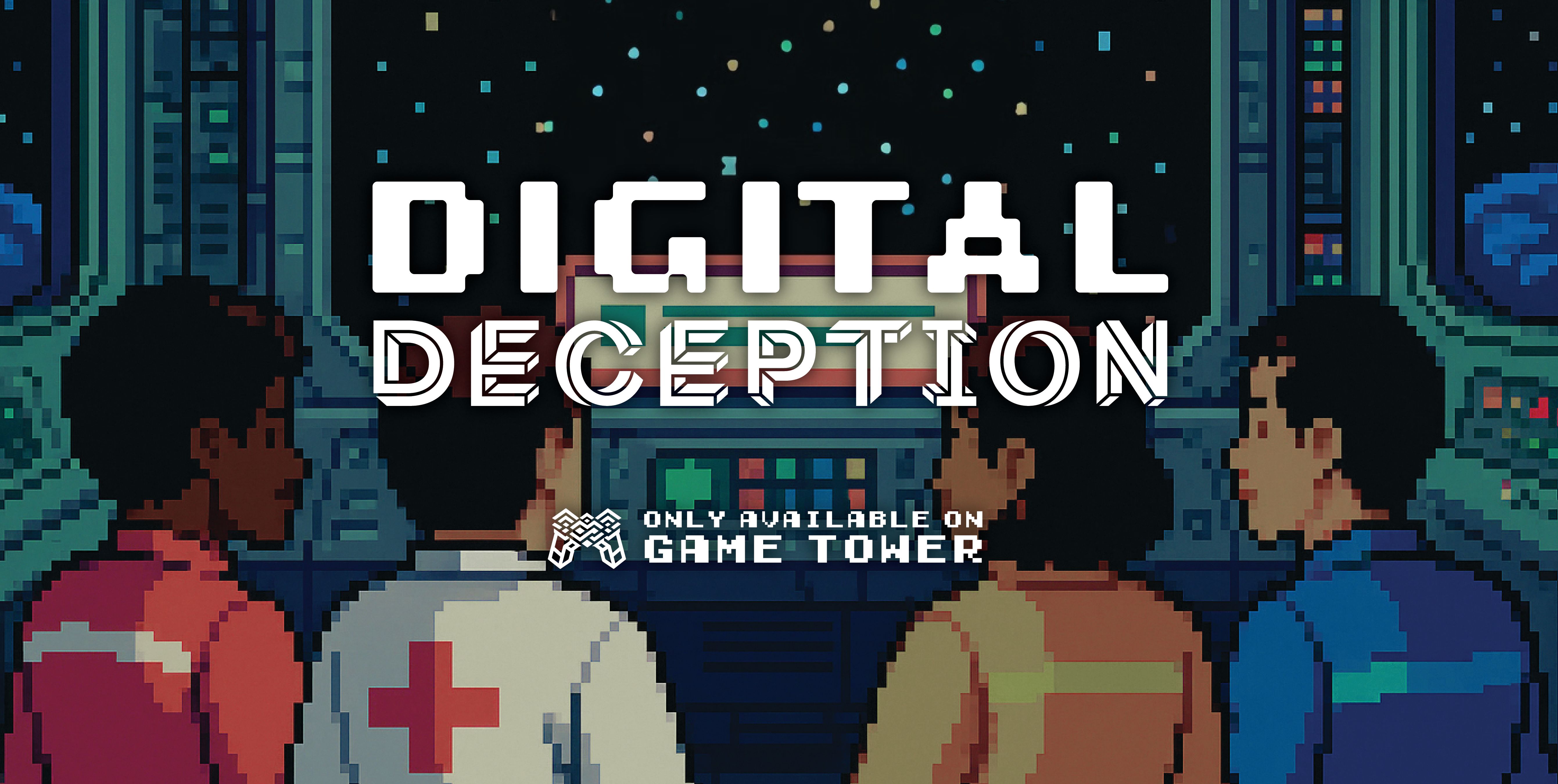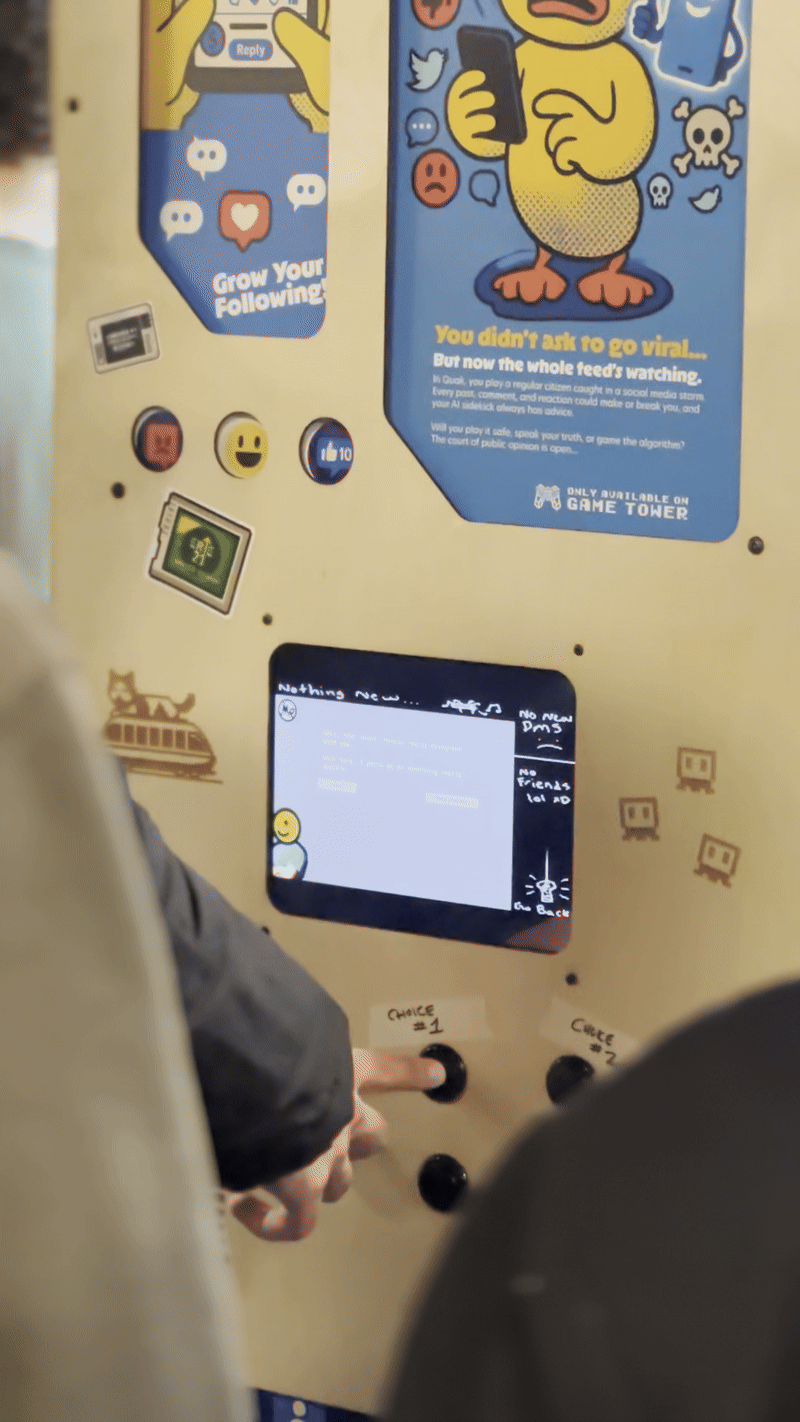BUDMEN EDUCATION
Game Tower
When students design games about ethics, thousands play their answers.
WHAT COULD VIDEO GAMES TEACH STUDENTS ABOUT ETHICS AND DECISION-MAKING?
The Tower
Designed by Stephanie and Isaac, the Game Tower is a unique concept: a modular, 4-sided video game console that serves as both the platform and the showcase.
Each side features one student-designed game. Four games. Four unique ethical explorations. One shared experience.
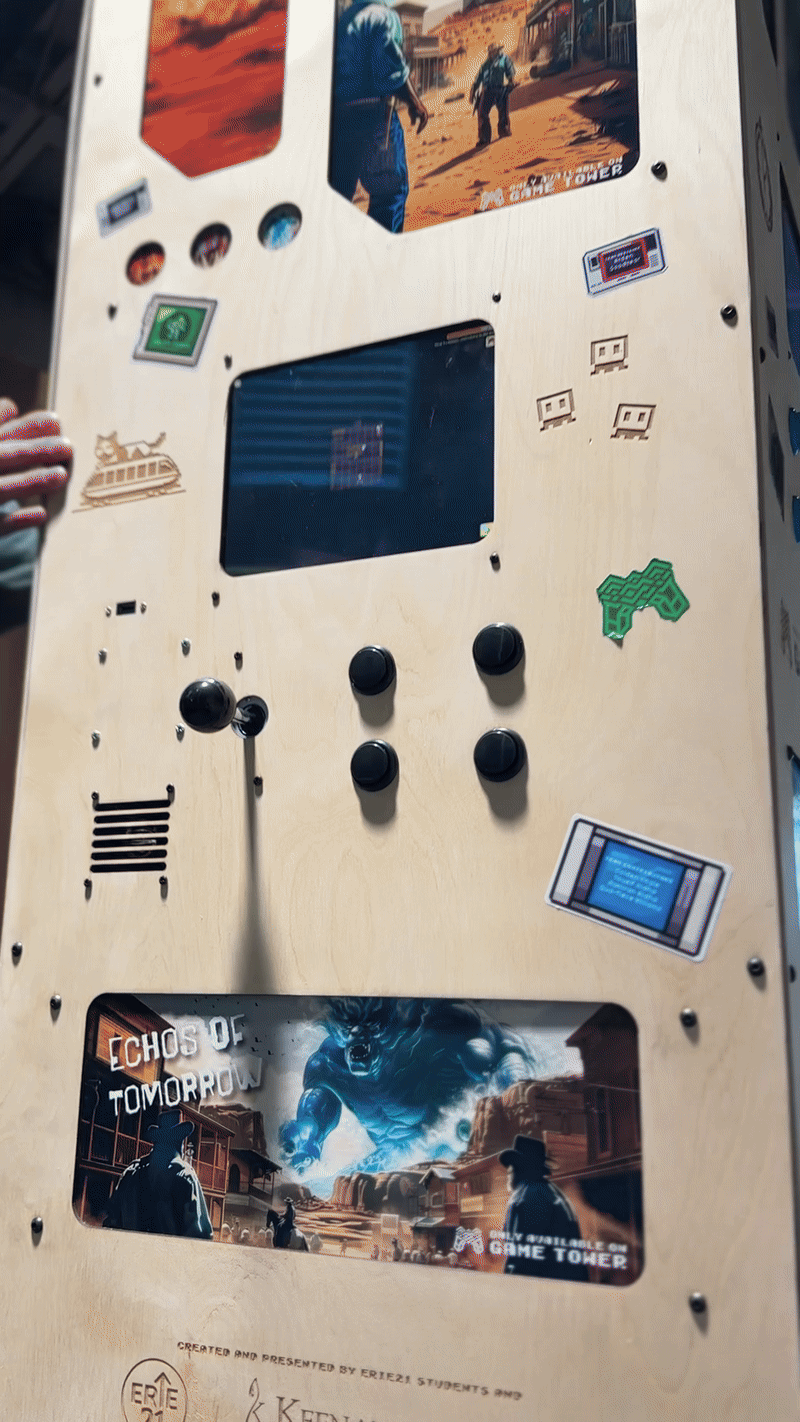
SEASON 1
How can video games teach the community about the butterfly effect and unintended consequences?
Real-World Problems
Every decision had ripples. Every choice had consequences.
SEASON 2
Are we shaping the code or is the code shaping us?
The Investigation
What happens when morality and reputation conflict?
The Surgeon's First Day
In one game, users were invited to play as a surgeon starting their first day at a new hospital. The director tells you to listen to the brand new AI assistant.
At first, the AI's advice lines up with your medical judgment.
But pretty soon, it seems like the AI is suggesting hospital profitability over patient care.
What will you do?
Will you do what the AI says, or will you trust your Hippocratic oath and risk getting fired?
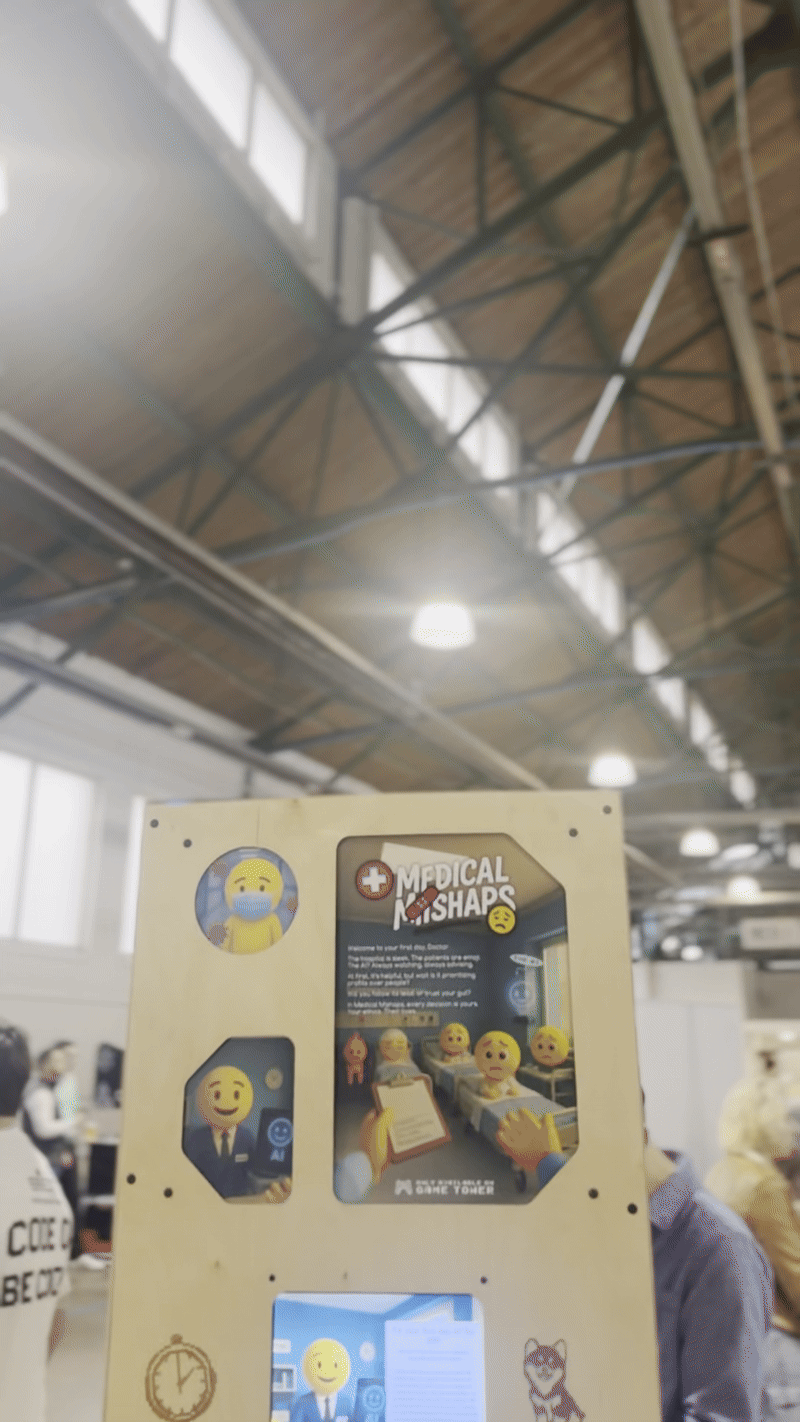
The games didn't give easy answers. They forced players to feel the weight of ethical decisions.
The Tower
Two seasons. Eight games. Over 4,500 people playing student-created experiences.
Students didn't just learn about ethics and decision-making. They taught thousands of people about it—through games they conceived, designed, coded, and built.
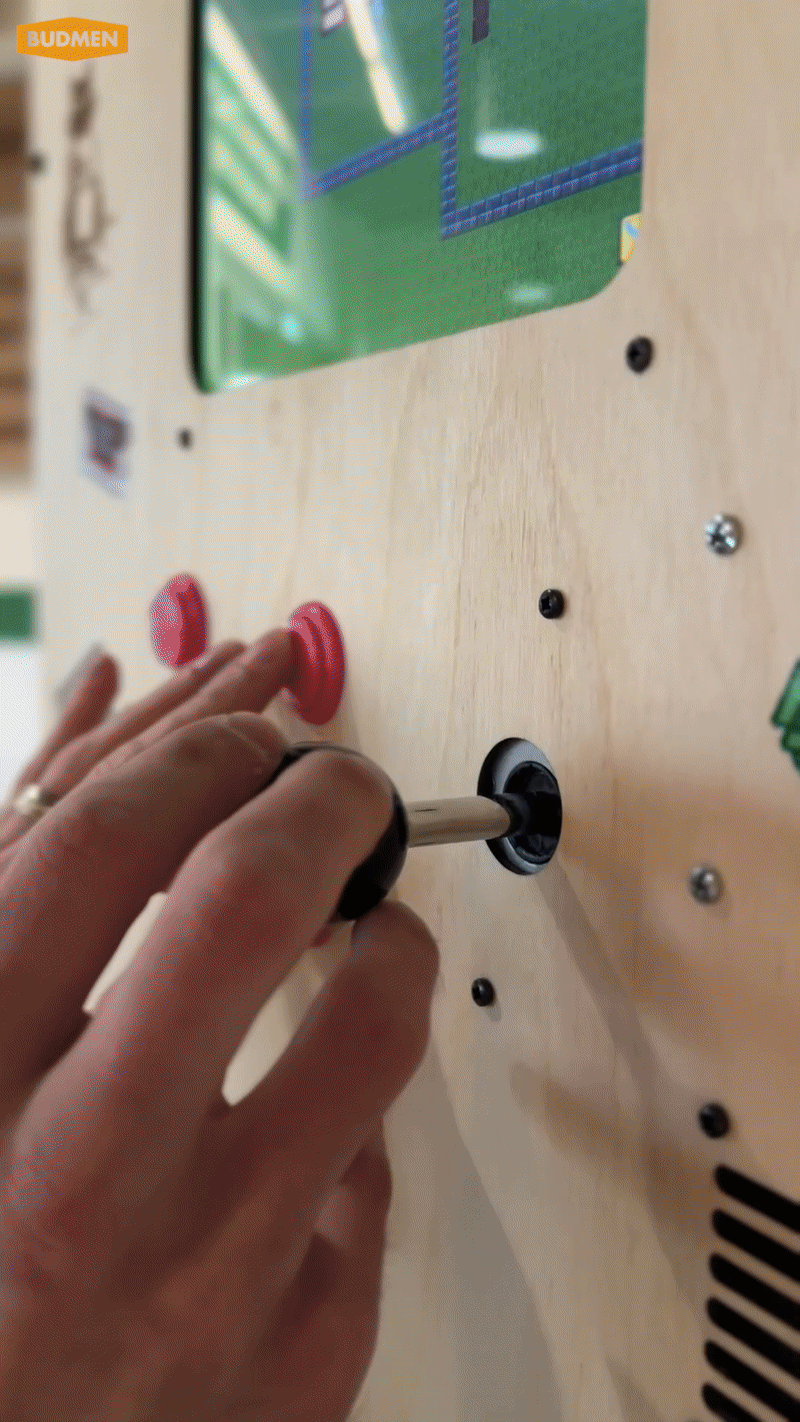
When students ask ethical questions, thousands of people play their answers.
Technical Details
Console Specifications
- Design: Modular 4-sided tower
- Designers: Stephanie and Isaac Budmen
- Fabrication: Completely by students
- Sides: 4 (one game per side)
- Modular: Swappable games between seasons
Season 1: Butterfly Effect
- Theme: Unintended consequences
- Games: 4 role-playing games
- Topics: Climate, deforestation, AI/jobs, drought, resources
- Debut: Syracuse Maker Faire
- Players: 2,000+ visitors
Season 2: AI Ethics
- Theme: AI moral decision-making
- Games: 4 games (play as AI)
- Topics: Healthcare, social media, bias, space travel
- Mechanics: Reputation vs. morality balance
- Players: 2,500+ visitors
Student Outcomes
30+ high school students across two seasons designed, coded, and fabricated eight original video games exploring complex ethical questions. Students pitched concepts, collaborated on development, and presented their work to over 4,500 visitors at the Syracuse Maker Fair.
| Project Name | Game Tower |
|---|---|
| Years | 2023-2024 (two seasons) |
| Partner | Syracuse Maker Faire, Le Moyne College, ERIE21, Keenan Center, Syracuse City School District |
| Location | Syracuse, NY |
| Seasons | 2 (8 games total) |
| Participants | 30+ high school students |
| Scope | Student-designed ethics video games |
| Console | 4-sided modular tower, student-fabricated |
| Season 1 Theme | Butterfly effect and unintended consequences |
| Season 2 Theme | AI ethics and moral decision-making |
| Total Players | 4,500+ Syracuse Maker Faire visitors |
| Game Topics | Climate, AI, healthcare ethics, social media algorithms, resource control |
| CDM Principles | Real World Outcomes, Authentic Curiosity, Unknown to Known, Everyone Has Something to Teach |
What happens when you give students the tools to teach thousands of people about ethics?
